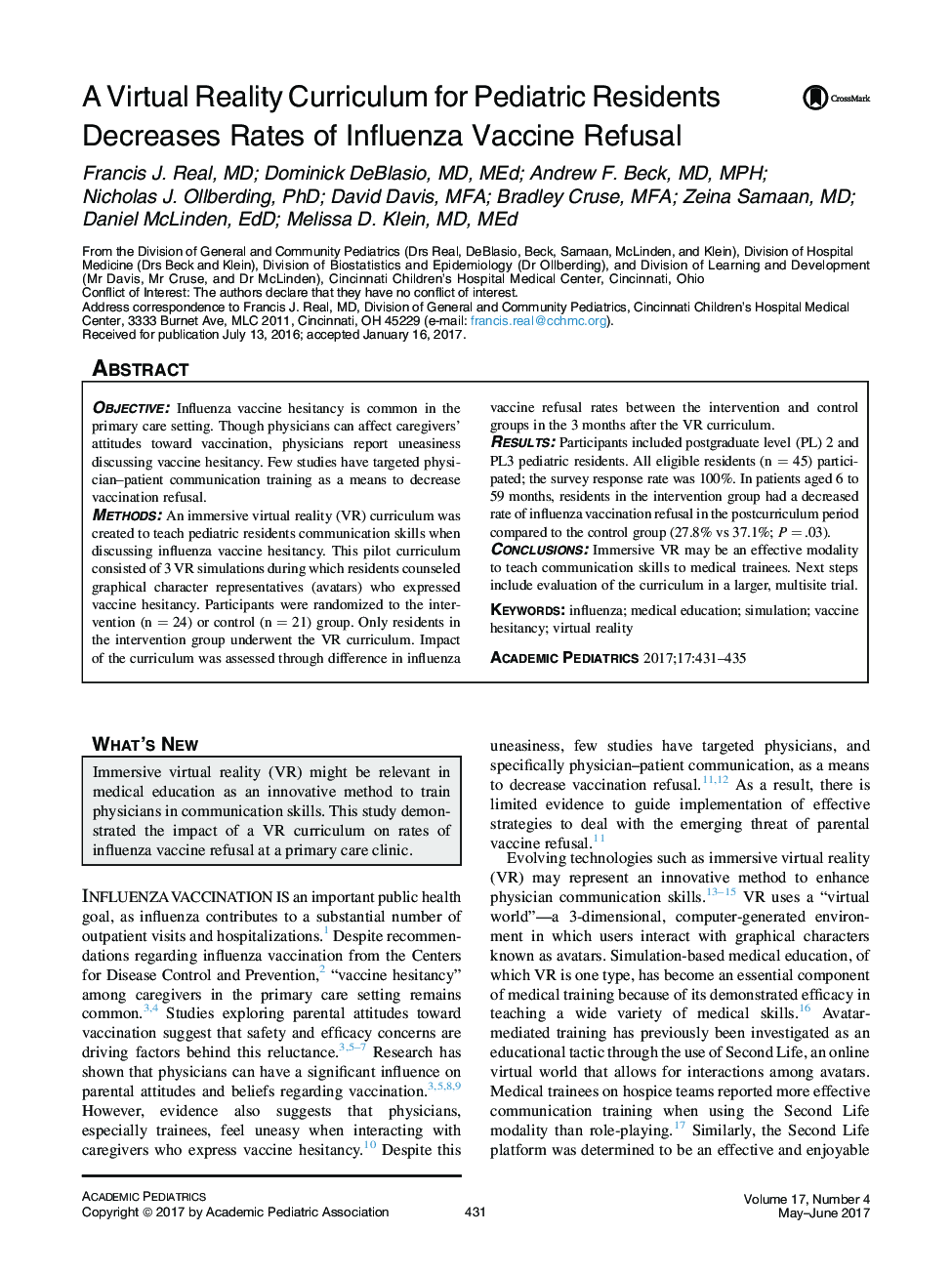| Article ID | Journal | Published Year | Pages | File Type |
|---|---|---|---|---|
| 5716876 | Academic Pediatrics | 2017 | 5 Pages |
ObjectiveInfluenza vaccine hesitancy is common in the primary care setting. Though physicians can affect caregivers' attitudes toward vaccination, physicians report uneasiness discussing vaccine hesitancy. Few studies have targeted physician-patient communication training as a means to decrease vaccination refusal.MethodsAn immersive virtual reality (VR) curriculum was created to teach pediatric residents communication skills when discussing influenza vaccine hesitancy. This pilot curriculum consisted of 3 VR simulations during which residents counseled graphical character representatives (avatars) who expressed vaccine hesitancy. Participants were randomized to the intervention (n = 24) or control (n = 21) group. Only residents in the intervention group underwent the VR curriculum. Impact of the curriculum was assessed through difference in influenza vaccine refusal rates between the intervention and control groups in the 3 months after the VR curriculum.ResultsParticipants included postgraduate level (PL) 2 and PL3 pediatric residents. All eligible residents (n = 45) participated; the survey response rate was 100%. In patients aged 6 to 59 months, residents in the intervention group had a decreased rate of influenza vaccination refusal in the postcurriculum period compared to the control group (27.8% vs 37.1%; P = .03).ConclusionsImmersive VR may be an effective modality to teach communication skills to medical trainees. Next steps include evaluation of the curriculum in a larger, multisite trial.
